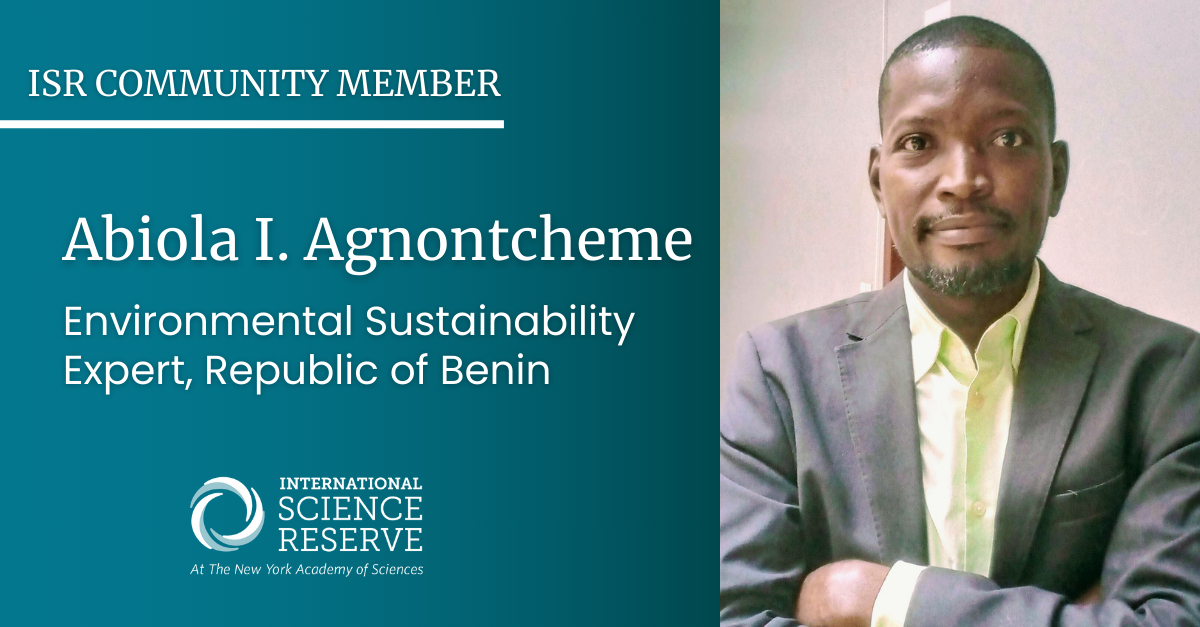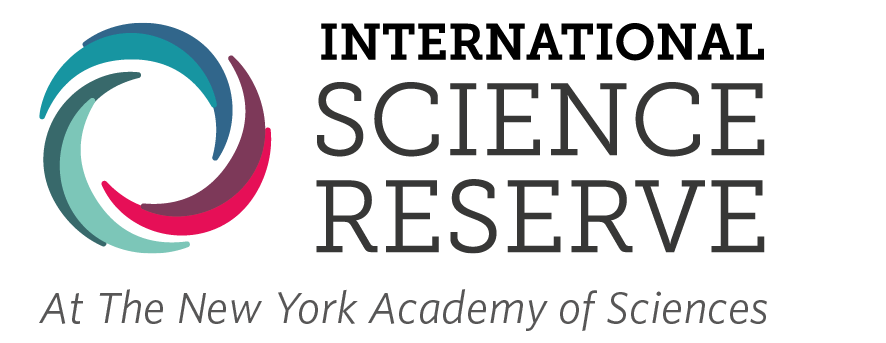Combining climate data with local knowledge for disaster preparedness
by ISR Staff

Abiola I. Agnontcheme is an environmental sustainability expert from Republic of Benin. He currently leads as the Country Director for Ecoclimate Vision Benin, which is a team of 40 national representatives with different backgrounds. Ecoclimate Benin partners with governments, businesses, and civil society organizations to collectively address the challenges of climate change worldwide.
He also works to translate climate change information from reputable sources into various languages spoken across the Global South. By providing localized content, Abiola can ensure that more people can access climate information in a language they understand, fostering greater awareness, engagement and contributing to community resilience.
Abiola recently spoke to the International Science Reserve about environmental risk management in the Global South, and how the ISR can be useful for increased cross-border collaboration on crisis.
You take climate data and information and translate it to Global South audiences. Can you tell us more about that process?
The information we share is sourced from reputable organizations, such as the UN Environmental Program (UNEP), the Intergovernmental Panel on Climate Change (IPCC), and the United Nations Framework on Climate Change (UNFCC). The information in English is shared via a Country WhatsApp Group which is translated in respective local languages. We shared quantitative and qualitative scientific data via community platforms and media to make it accessible to farmers, producers, and particularly vulnerable communities on the frontline of climate change impacts. We have also reached out online to our audience through social media sites like LinkedIn, Facebook and WhatsApp Group.
What are some of the challenges of not having localized and translated scientific data and information on climate change?
Ecoclimate Vision Benin works with more than 30 communities and partners in Benin. We do not always have the adequate vocabulary or specific words in local languages to make concepts clear for vulnerable communities within Ecoclimate Vision’s network. “Climate change,” for example, does not have an equivalent phrase when we are translating into a local language called Fongbe. The community who speaks Fongbe lives in southern Benin near River Oueme and many work in agriculture and fishing. Both industries are affected by the climate crisis.
Can you share more about your plans for community-based disaster risk reduction with governments, businesses and civil society?
We intend to collaborate with governments, businesses, and civil society organizations to design and implement climate change mitigation and adaptation projects. We are interested in flood resilience building and preparedness for our community which is the most frequently impacted by disasters in Benin; causing disruption within the community social system and disturbing livelihoods.
Why is it important to you do work with others outside your own discipline, country or region when it comes to disaster risk reduction?
Life is a learning process. I need to be open minded in learning new approaches that could be helpful for our vulnerable communities to sustain their livelihoods and continue supplying food and natural resources to our cities and markets. It’s beneficial to work with others to learn and gain expertise to use when disaster strikes in the world. Seasoned and well-prepared scientists can provide the meaningful expertise needed before and during a time of disaster.
Why did you join the International Science Reserve, and why would you encourage others to join?
I joined the ISR for the benefit of my country and community. We are one of the countries that is most exposed geographically to adverse climatic events, like flooding. which has caused long-term trauma; and disrupted food supply chains and environmental services. I also wanted to build my knowledge and expand my network on disasters to be prepared in advance. I would like to encourage others from any scientific sector in my region to join to learn and be useful for our community. The more people are prepared, the less harmful impacts there will be.


